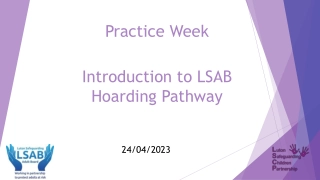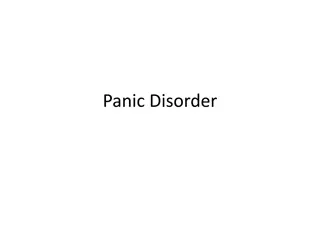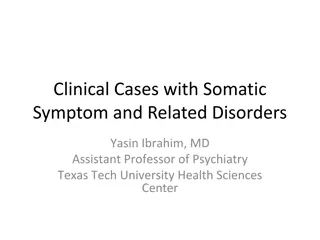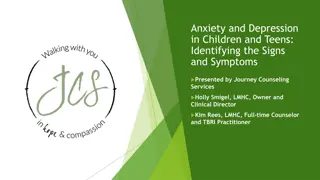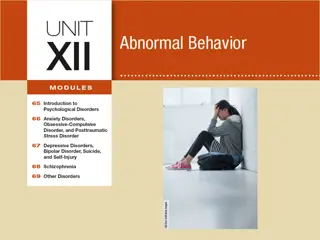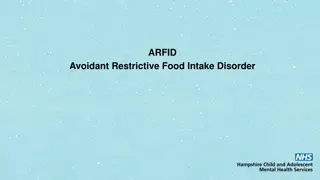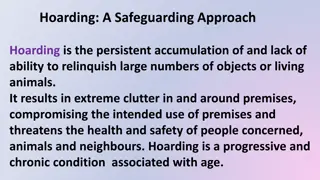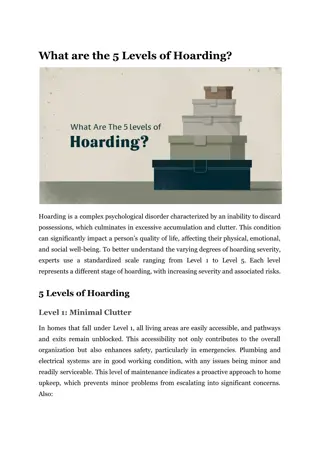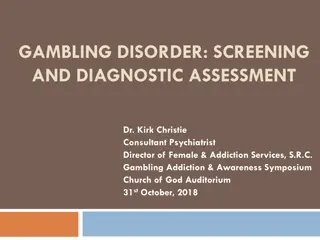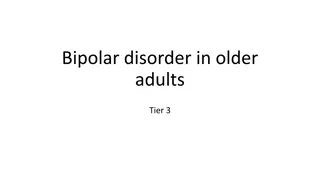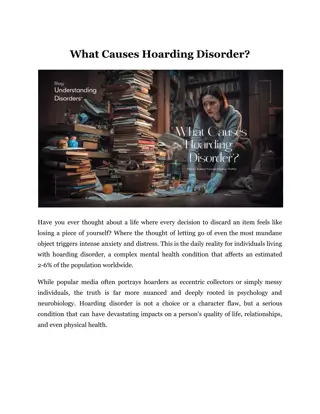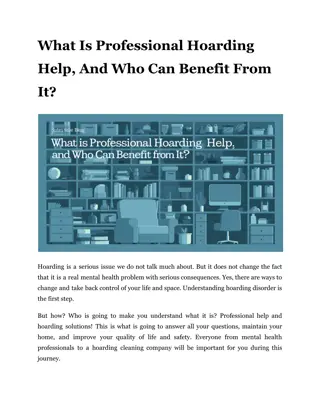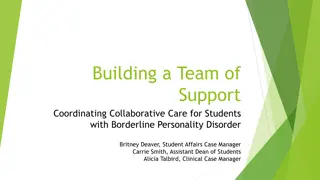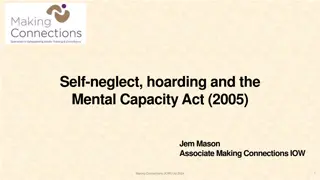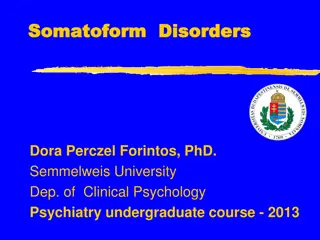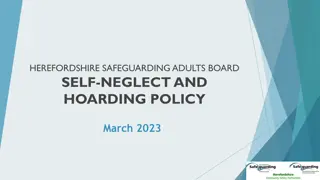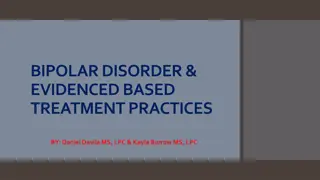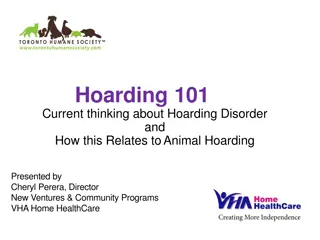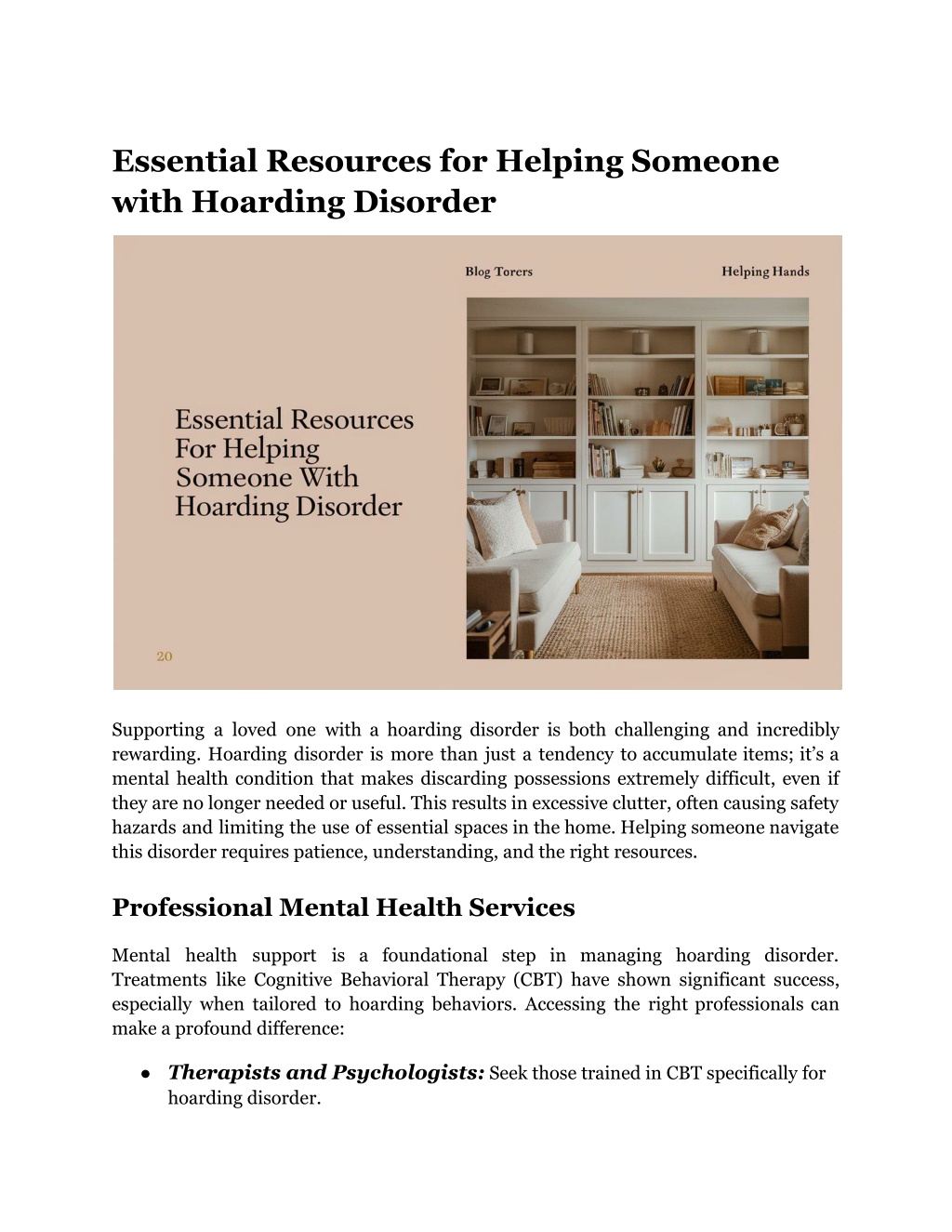
Essential Resources for Helping Someone with Hoarding Disorder
Discover practical resources and expert tips to support someone with hoarding disorder in a compassionate and effective way.n
Download Presentation

Please find below an Image/Link to download the presentation.
The content on the website is provided AS IS for your information and personal use only. It may not be sold, licensed, or shared on other websites without obtaining consent from the author. Download presentation by click this link. If you encounter any issues during the download, it is possible that the publisher has removed the file from their server.
E N D
Presentation Transcript
Essential Resources for Helping Someone with Hoarding Disorder Supporting a loved one with a hoarding disorder is both challenging and incredibly rewarding. Hoarding disorder is more than just a tendency to accumulate items; it s a mental health condition that makes discarding possessions extremely difficult, even if they are no longer needed or useful. This results in excessive clutter, often causing safety hazards and limiting the use of essential spaces in the home. Helping someone navigate this disorder requires patience, understanding, and the right resources. Professional Mental Health Services Mental health support is a foundational step in managing hoarding disorder. Treatments like Cognitive Behavioral Therapy (CBT) have shown significant success, especially when tailored to hoarding behaviors. Accessing the right professionals can make a profound difference: Therapists and Psychologists: Seek those trained in CBT specifically for hoarding disorder.
Psychiatrists: Useful for cases involving co-occurring conditions like anxiety or depression. Occupational Therapists: These specialists offer practical strategies to reduce clutter and increase organization, supporting individuals in confidently navigating their environment. Support Groups Support groups offer an invaluable space for individuals with hoarding disorder and their families. They provide both understanding and practical strategies, making them essential to a comprehensive support plan. In-person groups: Often run by local mental health centers, these groups provide face-to-face support and accountability. Online groups: Virtual support options allow those unable to attend in person to connect with others facing similar challenges. Family support groups: Family members can find resources and guidance on how to support their loved one best. Educational Resources Learning about hoarding disorder is key for anyone involved in helping. Gaining a deeper understanding of the condition enables individuals and their supporters to approach challenges with empathy and informed strategies. Books: "Buried in Treasures" by David Tolin, Randy Frost, and Gail Steketee is a recommended read that provides both insights and tools. Trusted Websites: Resources like the International OCD Foundation's Hoarding Center offer a wealth of information. Workshops and Webinars: Many mental health organizations and universities provide educational workshops, giving practical insights and up-to-date information. Professional Organizing Services Professional organizers, particularly those trained in hoarding disorder, can provide valuable hands-on assistance. These professionals bring structure and non-judgmental support to the decluttering process, making it more manageable and less overwhelming.
Certified Professional Organizers (CPOs): Especially helpful are those experienced with hoarding disorder, as they understand the specific needs and challenges involved. Community Hoarding Task Forces: Some communities have organized task forces focused on hoarding, which include professional organizers and other resources to assist in safe and effective decluttering. Hoarding Cleaning Services For severe hoarding cases, specialized hoarder house cleaning experts may be necessary. These services are equipped to handle large-scale cleanups safely and with sensitivity to the individual s emotional needs. Hoarding Cleanup Companies: These services specialize in decluttering and sanitizing spaces affected by hoarding. They are trained to manage hazardous materials and to work within a compassionate, supportive framework. Junk Removal Services: Although these companies don t provide the same level of emotional support, they can be a valuable resource for handling large quantities of items that need to be removed. Legal and Financial Resources Hoarding disorder can lead to legal and financial challenges, especially when it impacts housing, property safety, or family relationships. Access to these resources helps address these critical areas. Legal Aid Services: For individuals at risk of eviction or housing code violations, legal aid services can help address these issues. Financial Advisors: Hoarding can sometimes lead to financial strain; a financial advisor can assist in managing costs associated with treatment and any ongoing support services. Community and Government Resources Local community services and government programs can offer additional layers of support, especially when the disorder affects public health or safety. Adult Protective Services (APS): APS can be a valuable resource for elderly individuals with hoarding disorder, especially if their living conditions are at risk.
Animal Welfare Organizations: If the individual has multiple pets, which is common in cases of animal hoarding, welfare organizations can assist in rehoming animals safely. Fire Departments: Fire departments in many areas provide home safety checks, which can help prevent hazards in homes affected by hoarding. Technology Tools Incorporating digital tools can be surprisingly helpful in the process of organizing and managing clutter. Apps and software offer a way to set goals and track progress in a manageable way. Decluttering Apps: These apps allow users to set daily or weekly goals and track their progress, providing a structured approach to organizing. Digital Storage Solutions: By reducing paper clutter, digital storage systems help individuals manage essential documents in a secure, accessible way. Research and Clinical Trials Clinical trials and research studies are valuable options for individuals who want to explore new treatments or contribute to the scientific understanding of hoarding disorder. Research Studies: Universities and medical centers often conduct studies on hoarding, which may offer new insights into effective treatments. Clinical Trials: Clinical trials can provide access to novel treatment options that may not yet be widely available. Conclusion Supporting someone with a hoarding disorder is challenging but rewarding work. By combining mental health support, community resources, professional organizing services, and hoarding cleaning services when needed, you can create a holistic support network. Each small step taken in addressing the disorder contributes to a path toward recovery. Above all, patience and empathy are essential for both individuals and their support teams. Site Article: Essential Resources for Helping Someone with Hoarding Disorder

